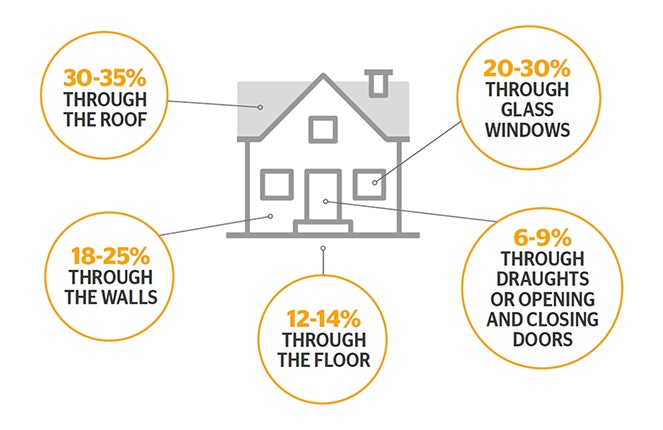Insulation makes your home more comfortable, as well as easier and cheaper to heat. Tenancy law requires landlords to have minimum levels of insulation installed in their rentals. Here’s what you need to know as a renter.
Insulation in rentals
What are your landlord’s obligations?
Install ceiling and underfloor insulation where practicable by July 2019.
Provide a statement outlining the level of insulation in the property in the tenancy agreement.
The level of insulation required depends on the type of home you live in, where you live and what’s already there.
There are some exceptions to the requirement to insulate. For example, if it’s an apartment where someone lives above and below, or if the house is built on a concrete slab and it’s not feasible to install underfloor insulation, or if the landlord plans to demolish or rebuild the house in the next year.
Landlords must not install or repair foil insulation – the repair and installation of foil insulation has caused electrocution. Do not touch foil insulation without turning off the power at the mains first as there is an electrocution risk.
Detailed information about the requirements is available on the Tenancy Services website.
How can you hurry it along?
First, check with your property manager or landlord about whether the house has insulation, and, if it has, where and in what condition. There should be a statement of insulation included in your tenancy agreement – it’s been law since 2016.
If the property lacks insulation, or it looks old and damaged, make sure your landlord knows about the deadline for installing and upgrading insulation. A landlord that doesn’t comply could be hit with a $4000 fine.
There are no longer any insulation subsidies available for rental homes.
Why insulation matters
In an uninsulated home:
30-35% of the heat escapes through the roof.
18-25% escapes through the walls.
12-14% is lost through the floor.
20-30% heads out through the glass in windows.
6-9% is lost through draughts or when doors are opened and closed.
Bulk insulation acts like a duvet on your bed, trapping air and preventing heat transferring easily from the warm side to the cold side. Bulk insulation can also deaden sound.

What it should look like
If you can check your home’s insulation, this is what you should look for:
Gaps, damage or compression
If there is insulation in some places but not others, it’s probably not effective. In the ceiling, it should be sitting above or over the top of ceiling joists. If insulation was installed a while ago, factors such as leaks or nesting birds could have damaged it. Over time, insulation can also settle or compress, which can make it less effective.
In the underfloor, you might see foil insulation. If it’s ripped or damaged, it should be replaced by another type of insulation. Installation or repair of foil insulation is banned, but if it’s in good condition, it may meet the regulations.
Fire hazards
If insulation has been installed over the top of electrical fittings such as downlights, it could be a fire hazard. Older recessed downlights should have a 100mm gap around them. Modern LED downlight fittings don’t need a safety gap. There should also be gaps around chimneys, heat lamps and extractor fans.
What if my landlord won’t get the insulation sorted?
If your landlord doesn’t get the insulation sorted by July 2019, report them to Tenancy Services. Call them on 0800 836 262 (0800 TENANCY) or see more about the Tenancy Services Compliance and Investigations team on their website.
Where else can I go for help?
If you want advice on how healthy your home is, you could get an independent assessment, so you’ve got some good information to support your conversations with your landlord or property manager.
Eco Design Advisors work at local councils and can provide free home assessments, for both homeowners and tenants.
They can check the house’s insulation and also give advice on ways to prevent draughts, heat your home, and energy savings measures that will help to lower your power bills.
Auckland Council, Hamilton City Council, Palmerston North City Council, Nelson City Council, Hutt City Council, Kapiti Coast District Council, and Christchurch City Council all have Eco Design Advisers who can provide free home assessments, for both homeowners and tenants.
Contact councils direct for more information.
For other ways to keep the heat in, see:

A renter's guide to a warmer home
Our free guide provides advice and tips on what you can do to make your home warmer, cosier and cheaper to heat.
Why is this free?
This report is free thanks to funding from the Ministry of Health.
Consumer NZ is non-profit. To help us get a fairer deal for all New Zealand consumers you can become a Consumer member or make a donation. We’ll use your contribution to investigate consumer issues and work for positive change.